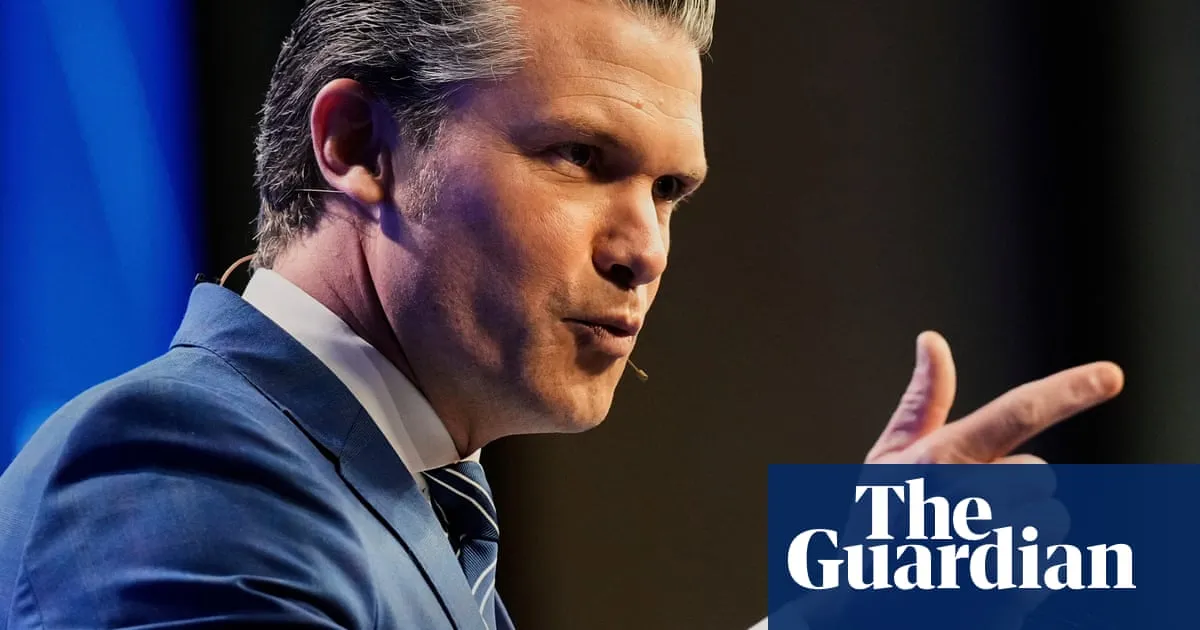
China's government has publicly criticized Pete Hegseth, a prominent figure in U.S. defense circles, following his remarks at the Shangri-La Dialogue defense conference in Singapore. Hegseth's comments, which labeled China as a potentially "imminent" threat, have triggered a sharp response from Beijing. On Saturday, Hegseth warned that China is "credibly preparing to potentially use military force to alter the balance of power in the Indo-Pacific," indicating that rehearsals for a possible invasion of Taiwan are underway.
In his keynote address at the Shangri-La Dialogue, Hegseth emphasized, "There's no reason to sugar coat it. The threat China poses is real, and it could be imminent." He urged Asian nations to bolster their defense spending to counter growing military assertiveness from China. This call for increased military readiness reflects a broader concern among U.S. allies about stability in the region.
In response, the Chinese Ministry of Foreign Affairs denounced Hegseth's remarks as "filled with provocations and intended to sow division." The ministry accused him of ignoring the regional calls for peace and instead promoting a "cold war mentality." They described Hegseth's assertions as defamatory and misleading, arguing that he misrepresented China's intentions in the Pacific.
The ministry's statement further claimed that no nation should be labeled a "hegemonic power" except the U.S., which they accused of undermining peace and stability in the Asia-Pacific region. Additionally, they criticized Hegseth's comments regarding Taiwan, labeling them as "playing with fire." The Chinese Communist Party (CCP) maintains that Taiwan is an integral part of China, while the island's democratically elected leadership and its populace reject CCP rule.
Australia's defense minister, Richard Marles, defended Hegseth's perspective, asserting that China has engaged in unprecedented military expansion since World War II. Marles stated, "What we have seen from China is the single biggest increase in military capability and buildup in a conventional sense by any country since the end of the second world war." He emphasized the importance of regional partnerships, including those with the U.S. and the Philippines, to uphold the global rules-based order.
The Shangri-La Dialogue is an annual defense conference that gathers leaders, defense ministers, and military chiefs from around the globe for discussions on security and regional stability. While significant dialogues often occur in official sessions, many crucial interactions take place in private meetings on the sidelines. In previous years, the U.S. and China have exchanged criticisms, but they have also engaged in pivotal discussions aimed at easing tensions.
This year, however, China sent a limited delegation, led by Rear Adm Hu Gangfeng from the People's Liberation Army’s National Defence University. During a panel discussion, Hu accused critics of China of attempting to "provoke, split and instigate confrontations in the region." He claimed the maritime situation in the Asia-Pacific is "generally stable," yet it faces "severe challenges," exacerbated by military presences from other nations infringing on territorial sovereignty under the guise of freedom of navigation.
On Sunday, Singapore's defense minister, Chan Chun Sing, highlighted the necessity for improved communication between China and the global community. He remarked that it is essential for China to leverage every opportunity to clarify its stance, emphasizing the importance of avoiding misinterpretation or miscalculation by either side. This sentiment underscores the ongoing need for dialogue to maintain peace and stability in the increasingly complex geopolitical landscape of the Asia-Pacific.